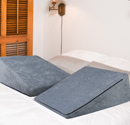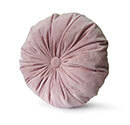Sleep is essential to humans as is food, water, clothing or any other basic need for survival, physical and mental health. You need adequate sleep of about 6-8 hours a day to get you through the following day smoothly. Here are facts about sleep that you did not know:
1.Sleep can help your memory
Studies on human mental wellness suggests that helps learning and memory in two distinct ways. First, well rested persons can focus their attention optimally thereby able to learn and think efficiently. Secondly, human need sleep as the foundation of a consolidated memory, which is essential for accommodating new ideas.
2. Lack of sleep can shorten your life and make you gain weight
Getting less than the desired minimum of 6 hours of sleep per night can dramatically shorten your lifespan. You could add up to 0.9 kgs of fat after a just 1 week of sleep deprivation! The food cravings that you have everyday are a direct consequence of lack of enough sleep.
3. Sleep deprivation can cause drowsiness
Scientists suggest that lack of enough sleep causes drowsiness, vision blurriness and speech slurriness. Do you ever fall asleep in less than a mere 5 minutes? This is a clear sleep deprivation indicator as it typically should take 10-15 minutes to drift off into your sweetest of dreams.
4. Is it possible to fall half asleep?
Scientists suggest that it is possible to be in a state of half consciousness and half unconscious. You experience some elements of sleep mixed with some aspects of wakefulness. However there is no explanation as to why this happens. Whales and dolphins literally fall half-asleep, meaning half of their brain is sleeping while the other is still at work, allowing them to surface for air. So do not panic. Consider yourself normal since we are distant cousins to wonderful sea creatures.
5. Our sleep is what we eat!
The foods we consume contribute up to 90% of the quality of sleep that we get. Foods rich in carbohydrates boost tryptophan- a sleep promoting substance- in the blood therefore good sleep. On the other hand, protein-rich foods contain the amino acid tyrosine, which promotes brain activity, making you more alert and interrupting your ability to sleep.
6. Light and noise can interrupt your sleep
Light from any source, street lights, alarm clock or bulbs can cause disruption on your sleep cycle- even when you are not fully awake. The light reacts as a ‘switch’ thereby turning off neutral sleep chemicals hence the state of sleep declines within a moment. A noise is just as disruptive, and can even suppress immune function.,
7. More sleep can help your sex life
Some body processes function better with the body and mind well rested. Sleep deprivation is associated with lower libido and lack of interest in sex generally, in both men and women. If you are experiencing the above symptoms you know what could actually be the problem.
8. Regular exercising can help you sleep
Sleep researchers theorize that regular exercising can set a person’s biological clock into a consistent sleep/wake pattern. Additionally, exercising boosts the production of serotonin, a neurochemical responsible for inducing sleep.
9. Lack of sleep contributes to low mood
Poor sleep, depression and anxiety go hand in hand since sleep disruptions result to negative thinking and emotional vulnerability.Normally when you’re sleeping, your brain is able to take a break, your heart rate slows and it’s almost like your body resets. If you don’t allow that, it’s even harder to deal with daily stress.Taking time to create a successful and sustainable sleep pattern will help to ensure longevity and happiness, mentally, physically and emotionally.
































